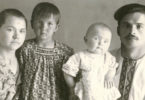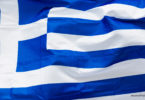Plenty of people who live in Louisiana or are from there have surnames that are Cajun in origin. Those with Cajun surnames usually have ancestry that is at least partially French, and sometimes wholly French. You can use a Cajun surname to glean a lot of good information about your Cajun family tree. While lost records and families that moved may make putting a complete family tree together a challenge, knowing the meaning of a Cajun surname can help you get over at least a few brick walls along the way to genealogical triumph.
Most Cajun last names originated in Canada (originally called Acadia), where the French settled beginning in the 16th century. Those names, like others of European origin, usually says something about the region in France from which a family hailed, the occupation of the original owner of the surname, the father of that person, or the physical description of the surname’s original owner. Here are the meanings of some of the most common Cajun surnames, and what they can tell you about your Cajun and/or French heritage
Guidry — This is a French surname, with is itself a later version of a German first name with the root “waido.” “Waidro” means “hunt.” The original owner of this surname is said to be a man by the name of Geudry dit Grivois dit Laverdure, who was a farmer who moved from France to Canade by 1698, and all later people with this surname are supposed to be his descendants.
Broussard — A French word meaning “bushman,” this surname is believed to have originated in a region of southern France called Languedoc. Some common variations of Broussard are Brousset, Brusse, Brousse, Broussette, Brusey, and Brosset. There are other, less common variations to this surname, as well.
Landry — A French word of German origin, thanks to changing borders over the centuries, the surname originates from a German first name called “Landric.” “Landric” literally translates to “land powerful.” Those who were originally bestowed with this surname were powerful landowners. The first people to use it were farmers in France who came to England with the Norman Conquest, and centuries later came to Canada. From Canada, they made their way to Louisiana, where Landry is now a common Cajun surname there.
Hebert — “Hebert” translates to “army famous,” which essentially means “famous warrior” or “brilliant warrior.” It came to northwestern France from Germany in Medieval times, then to England, Canada, and Louisiana. Those who originally bore this surname were strong soldiers who did well on the battlefield and as military strategists.
LeBlanc — This Cajun surname is well-known because of Matt LeBlanc, who played Joey on the popular TV sitcom “Friends.” It is a common northern French surname, in an area where people were paler than in other parts of France; the name translates to someone with fair hair or a fair complexion (“the white” is the literal French translation). Interestingly, in southern France at the opposite end of the country, orphan children were often given the surname Blanc, without the Le in front of it. This could mean “white” as in having a clean background that was “white” in the sense that there was nothing to it yet. The orphaned children had to create their own backgrounds and identities if they did not know the family from which they came.
Any Surname with “Dit” in It — This is a common Cajun was of forming a surname. When French colonists came to Louisiana, they often translated their names into English to better communicate with their English neighbors. As an example, LeBlanc would have been translated to White, and White would have been that person’s new surname. Other French settlers in Louisiana opted for an entire new beginning in the New World and took on new surnames that described their jobs or the first name of a beloved relative.
Those who knew this person from the old world would put “dit” in the middle of the old surname and the new one when referring to them. So, if a man by the French surname LeBlanc came to Louisiana and took on the surname Hebert, those who knew him in France might refer to his surname as “LeBlanc dit Hebert.” The “dit” means “alias,” “called,” and “said.” Over time, those “dits” became incorporated into the surname and were passed down to subsequent generations as part of their Cajun family name.
Moving from Canada to Louisiana
Most Cajun surnames originated in Canada; only a few originated in Louisiana first. In colonial times, the French colonized eastern Canada, where they lived in peace beside the Wabanaki Confederacy of Native tribes. However, England had a strong foothold in the lower parts of North America and wanted to claim the whole continent. The result was, eventually, the French and Indian War in the mid-1700s. The French and Natives, who fought together, lost the war. The English, in turn, expelled them from contested areas of Canada. England didn’t take all of Canada, but it took the maritime areas and what are today parts of modern Maine.
Many who were expelled from the Acadian region of Canada were moved by the British government into the New England colonies. Others were deported back to France, and some were sent to England and Portugal. Conditions were not great for them in Europe at the time, so many who were deported returned, settling in either French-controlled Quebec or French-controlled Louisiana. There was even a movement for some Acadian refugees to settle South America, but there was too much disease to deal with on the route there, and once they got there, so it didn’t happen.
Those who went to Louisiana freely mingled with the Native Americans, Spanish, Portuguese, and free and enslaved Africans who lived there, and eventually married and produced children. These children would begin the Cajun culture that is still in the region today. Now that you know the meanings behind some common Cajun surnames, you can use the information to learn more about your French and Louisiana heritage.






